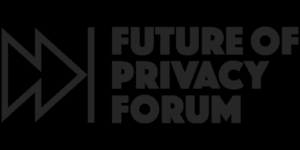Showing results for tousers phone number 614 647 0039 emergency electrical service tousers phone number 800 387 0073 614 647 0039 1-800-387-0073 number 614 647 0039 number 1 0073 614 647 0039 614 647 0039 800 387 0073 614 647 0039

16th Annual Advisory Board Meeting 2025
[…] team at [email protected]. Transportation Information The Wharf InterContinental DC Hotel is located at 801 Wharf Street, SW, Washington, D.C. 20024. Click here for directions to the hotel. Car Service: For traveling guests who need to arrange transportation from Dulles International Airport (IAD) or Washington National (DCA), we recommend booking through rideshare services (Uber, Lyft, Taxis). […]

FPF-Sponsorship Prospectus-2025-R1
[…] $5,000 for (3) months AUDIENCE Distribution list of 2,000 people, including corporate employees of 210+ FPF member companies. List includes senior level privacy executives from a significant number of Fortune 500 companies. Benefits of Sponsorship include: » Company name and logo included on LinkedIn Live promotional materials (LI posts, Twitter, and YouTube; IG story […]

FPF AI Governance Framework November 2024
[…] AI Systems Providers : High- Risk AI systems need to undergo a conformit y assessment (Ar t. 43) before being placed in the market or put into service (i.e. data quality, documentation and traceability, transparency, human oversight, accuracy, cybersecurity and robustness – Arts. 9-15); This assessment has to be repeated if the system or […]

The African Union’s Continental AI Strategy: Data Protection and Governance Laws Set to Play a Key Role in AI Regulation
[…] enforcement agencies and regulatory bodies dealing with child protection. The Strategy acknowledges the progress made in addressing data protection issues across Africa, as seen with the growing number of data protection laws and authorities. Furthermore, the Strategy notes that 25 African countries have launched national open data portals, and nearly all of these countries […]

Japan APPI Privacy Notice 2024
[…] order to decline this tracking. W e collect information from users of the Portal regarding the submission and sharing of content in order to provide the Portal service. WHO HAS ACCESS T O YOUR DA TA Sometimes we share your information with our partners. This happens when we co-organize events, panels, or engage in […]

Japan APPI Privacy Notice 2024
[…] order to decline this tracking. W e collect information from users of the Portal regarding the submission and sharing of content in order to provide the Portal service. WHO HAS ACCESS T O YOUR DA TA Sometimes we share your information with our partners. This happens when we co-organize events, panels, or engage in […]

Japan APPI Privacy Notice
[…] order to decline this tracking. W e collect information from users of the Portal regarding the submission and sharing of content in order to provide the Portal service. WHO HAS ACCESS T O YOUR DA TA Sometimes we share your information with our partners. This happens when we co-organize events, panels, or engage in […]

Japan APPI Privacy Notice – Future of Privacy Forum – S&K Brussels Draft 11062024.docx
[…] order to decline this tracking. W e collect information from users of the Portal regarding the submission and sharing of content in order to provide the Portal service. WHO HAS ACCESS T O YOUR DA TA Sometimes we share your information with our partners. This happens when we co-organize events, panels, or engage in […]

U.S. Legislative Trends in AI-Generated Content: 2024 and Beyond
[…] detection tool available to its users. Separately, the Federal Communications Commission (FCC) is exploring creating rules around the use of technologies that analyze the content of private phone conversations to alert users that the voice on the other end of the line may be AI-generated. Check out FPF’s new report: Synthetic Content: Exploring the […]

Processing of Personal Data for AI Training in Brazil: Takeaways from ANPD’s Preliminary Decisions in the Meta Case
[…] following an inspection into the lawfulness of processing of personal data by Meta for the training of AI models. Particularly, the DPA initially ordered Meta under an emergency procedure to suspend this processing citing potential harm and irreparable damage to users. The emergency order was later maintained following a first challenge, but it was […]
